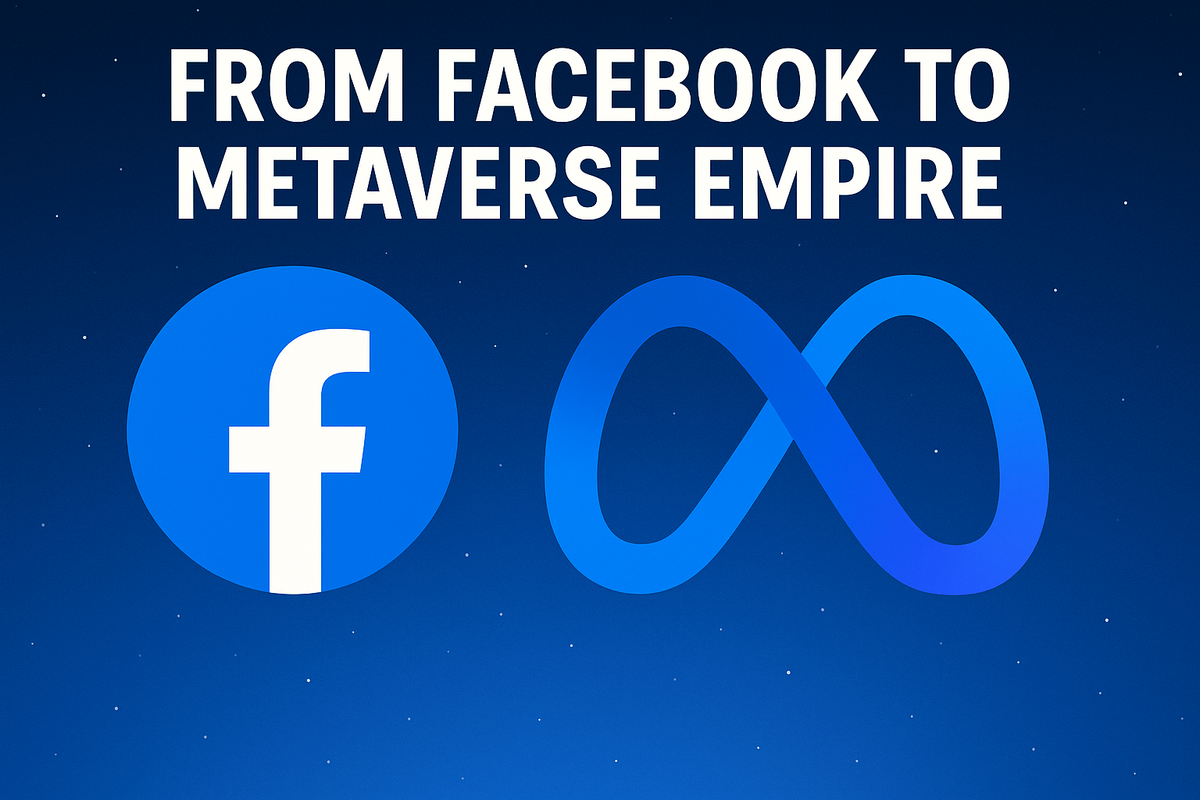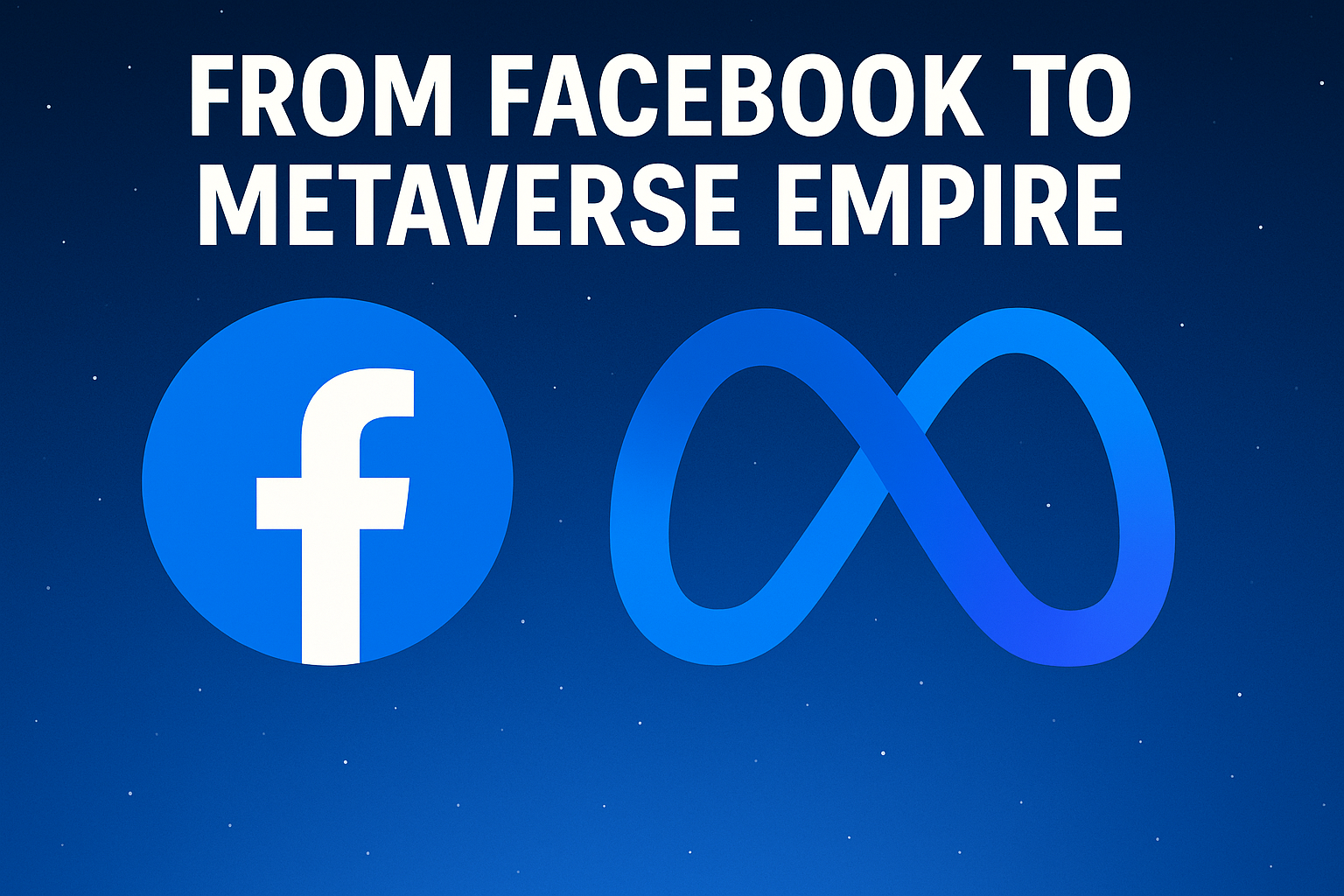History of Meta: Meta’s Evolution: From Facebook to Metaverse Empire


Meta Platforms, Inc. (NASDAQ:META) stands today as a global technology powerhouse, a far cry from its modest beginnings in a Harvard dorm room in 2004. What started as “The Facebook” — a social networking platform for college students — has since grown into an empire that has redefined how the world communicates, consumes content, and imagines the future of digital interaction. The journey from Facebook’s early days to Meta’s current ambitions in the metaverse is a story of bold pivots, massive financial growth, and relentless pursuit of innovation.
The Social Network Era: Rapid Growth and Monetization
Launched by Mark Zuckerberg and a group of college peers, Facebook initially targeted university networks but quickly expanded to the general public by 2006. The platform’s intuitive design and viral growth strategy drove user adoption to over 100 million by 2008 and over a billion by 2012, cementing Facebook’s dominance in the social media landscape.
Early monetization strategies were simple banner ads, but Facebook rapidly evolved its advertising engine, leveraging unprecedented access to user data. The 2012 initial public offering (IPO) on the NASDAQ was one of the largest in tech history, raising $16 billion and instantly making Facebook one of the most valuable internet companies in the world.
Strategic Acquisitions: Expanding the Digital Footprint
Facebook’s next stage of evolution was marked by high-profile acquisitions. The $1 billion purchase of Instagram in 2012 was considered risky at the time, but ultimately proved visionary, giving Facebook dominance in the mobile-first visual content space. WhatsApp, acquired for $19 billion in 2014, solidified the company’s reach into private messaging and international markets. The acquisition of Oculus VR the same year signaled the company’s first foray into virtual reality, a move that would later shape its metaverse ambitions.
Throughout the 2010s, Facebook faced both explosive growth and growing pains. The company expanded its product ecosystem with Messenger, Workplace, and a robust developer platform, but also grappled with regulatory scrutiny, privacy concerns, and global debates over the power of social media.
Rebranding as Meta: A New Chapter
In 2021, Facebook underwent a historic transformation, rebranding itself as Meta Platforms, Inc. This move wasn’t just cosmetic. The rebrand reflected a strategic pivot towards the “metaverse” — a vision of interconnected, immersive virtual environments blending social interaction, gaming, commerce, and work.
Meta committed billions of dollars annually to Reality Labs, its division dedicated to building virtual and augmented reality hardware, software, and content. The Quest series of VR headsets, Horizon Worlds, and other metaverse initiatives became the company’s flagship bets on the next wave of the internet.
Financial Performance: Riding the Digital Economy Boom
Financially, Meta’s trajectory has been meteoric. The company’s revenue surged from $5 billion in 2012 to over $134 billion in 2023, driven primarily by its digital advertising machine. With a user base spanning over 3 billion monthly active users across its core platforms, Meta became the engine room of the global digital economy.
Despite heavy investments in the metaverse — which have yet to generate meaningful profits — Meta’s advertising business continues to deliver robust margins. The company’s stock has seen periods of volatility, especially as investors digest the scale and uncertainty of metaverse investments, but long-term growth remains strong.
Challenges and Transformation in the Metaverse Push
Meta’s transition into a metaverse company has not been without headwinds. The digital advertising market faces increasing competition from TikTok and other platforms. Regulatory scrutiny in the U.S., Europe, and Asia intensifies, focusing on issues from user privacy to antitrust concerns. The metaverse, while promising, is still a nascent industry facing technological, adoption, and monetization challenges.
However, Meta’s size, financial resources, and developer ecosystem give it a critical advantage. Its commitment to artificial intelligence, mixed reality, and next-generation connectivity could eventually transform industries ranging from entertainment and education to commerce and work.
Looking Ahead: Meta’s Empire in a New Digital Era
As Meta approaches the third decade of its existence, the company sits at a crossroads. Its social media platforms remain foundational to billions of people’s daily lives, while its bet on the metaverse could unlock entirely new digital economies and experiences.
Investors and industry observers continue to watch Meta’s evolution closely. The company’s willingness to reinvent itself, absorb short-term challenges, and spend aggressively on future technologies could shape the digital landscape for years to come.
Disclaimer: This article is for informational purposes only and does not constitute financial advice, investment recommendation, or an offer to buy or sell any securities. Investors should conduct their own research and consult with a qualified financial advisor before making investment decisions.



